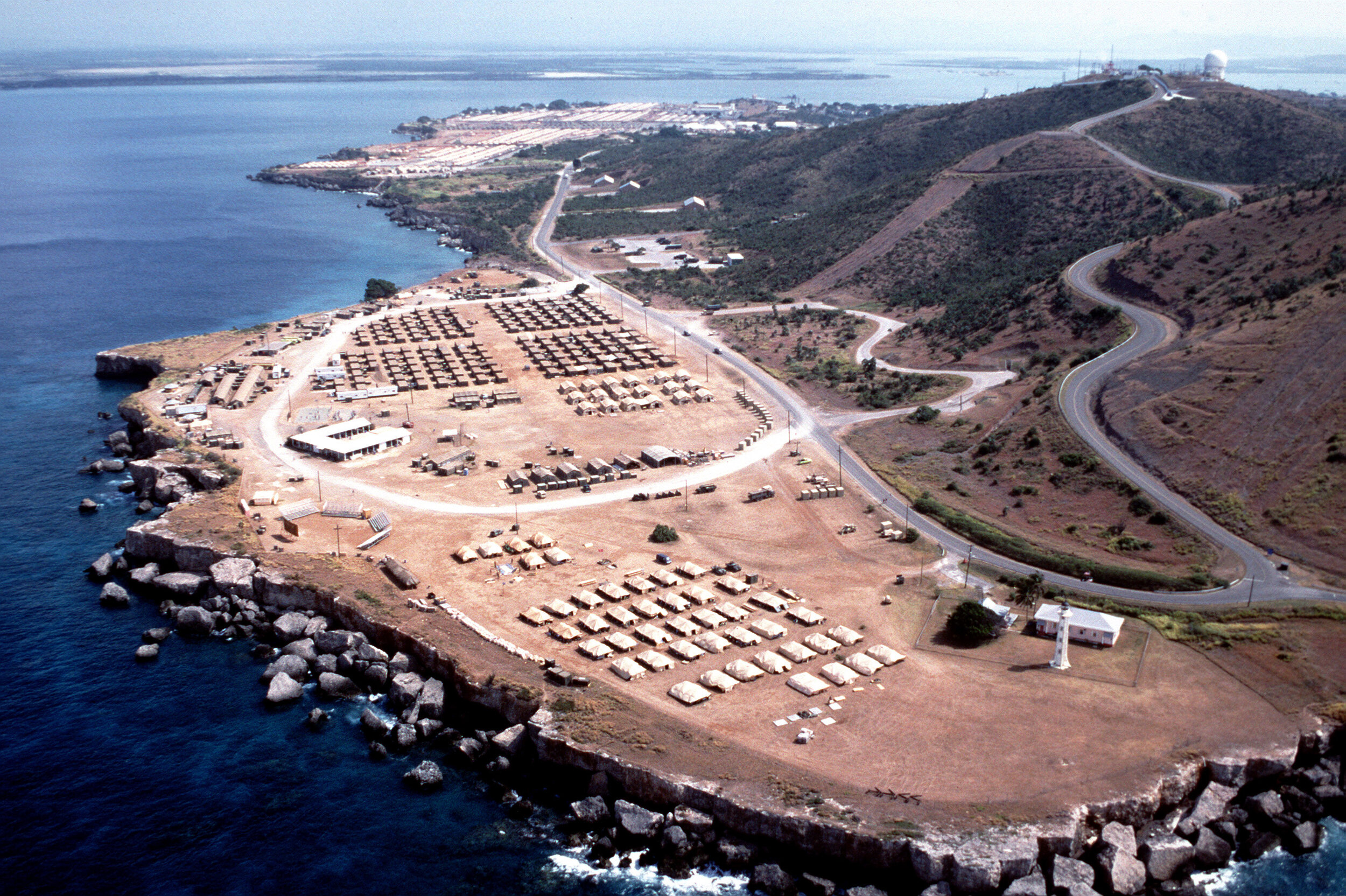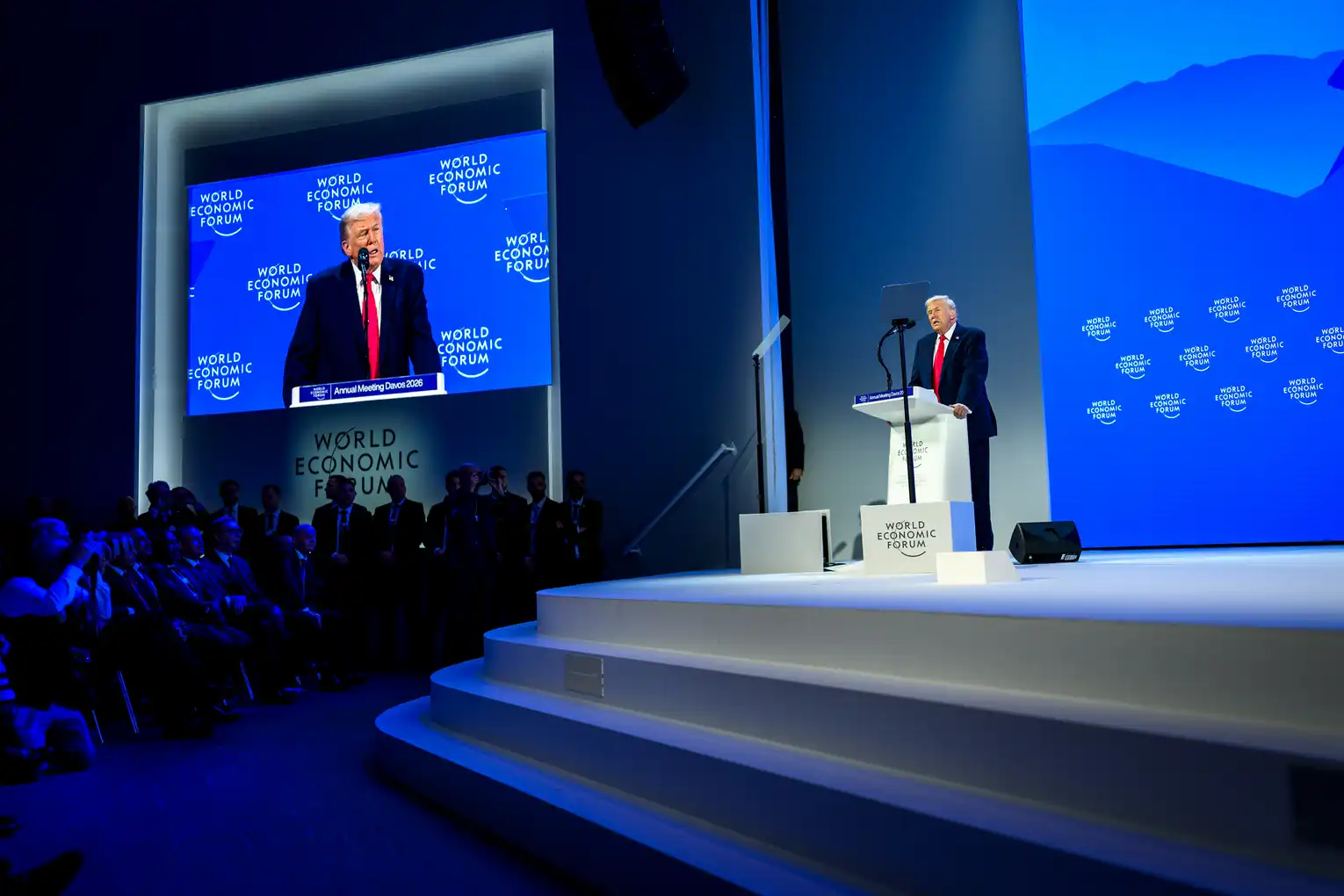PICTURED: Aerial view of Camp Phillips at Windward Point, Guantanamo Bay, Cuba. The National Defense Auth. for FY 2021 continues protection for Guantanamo Bay and the prison there.
WASHINGTON D.C., June 27th, 2020. In the Senate’s recent version on the National Defense Authorization for Fiscal Year 2021 (NDA), stand out changes to existing foreign and defense policy include Senate’s redirect under the Trump Administration towards enhanced battle-readiness and potential for making hostilities with Russia and China, rather than pursuing the Global War on Terror much further.
However the after-effects of the long and disastrous interventions in Iraq, Afghanistan, and Syria aren’t exactly leading to corrections, rather a few of the most controversial and tragic policies – Guantanamo Bay as one example, are continuing along the road they’ve been on since the Bush Jr. Administration.
From a standpoint of budgets and debt, the recent stimulus packages as well as the economic downturn in production resulting from COVID-19 lockdowns might have suggested decreasing defense extravagance. In some ways this is correct, but expansions out into the Indo-Pacific with a new initiative involving the constructions of new bases, long-range missile batteries, and airfields, and the integration of the Space Force into defense infrastructure ensures it’s unlikely to mean any additional funding for other sectors in the nation.
Theaters of the Global War on Terror
The recent pre-peace deal signed in Qatar between the U.S. and the Taliban that outlined a complete withdrawal from Afghanistan received a fair amount of criticism in a section of the NDA labeled “Sense of Senate”.
In it the authors of the bill state that it’s the sense of the Senate that after 20 years of war in the South Asian country, the U.S. and its allies have “made progress” in the fight against al-Qaeda and ISIS but that both groups still exist with the power to operate in the country.
An extreme admission, as over $1 trillion has been spent fighting in this theater, both on American military forces and the Afghan Security Forces, over 2,500 American soldiers and military personnel have lost their lives, and just about every international law on limited war has been violated. Troop withdrawals must be done, according to the bill, “in an orderly manner,” based around “conditions on the ground” and not on “arbitrary timelines”.
Timelines have often been considered by hawks in Congress and cabinet as a foolish way of organizing withdrawals, as it encourages the enemy to dig in and simply wait for American forces to leave. However in the absence of timelines, more dovish officials over the last 20 years have said, the wars simply run on, objectives are poorly managed and organized, and taxpayer money is wasted.
The pre-peace agreement set down a program for an 18-month withdrawal from America’s longest war, which has been largely kept to schedule, despite violence reigning in several provinces.
The next subsection details everything the American people have come to expect from discussions of troop withdrawals from the Middle-East, namely warnings of “safe haven” – that the resulting power vacuum proceeding a U.S. retreat will be filled in with violent extremists.
This is extremely unlikely, as much in Afghanistan as anywhere else, as the Taliban control more territory than ever in the war-ravaged country, and in late-November of 2019, Afghan President Ashraf Ghani and Taliban spokesman Zabihullah Mujahid got into a Twitter argument over which armed forces deserve credit for “obliterating” Daesh (Islamic State in Afghanistan and Pakistan).
Assistance payments
Despite the Senate’s clear apprehension to the idea of a withdrawal schedule based on time rather than conditions, the NDA cut the amount of payments afforded to nations aiding in Operation Freedom’s Sentinel (the NATO-involved arm of the war effort) and other Afghan war projects by two thirds.
In the DBA of 2008, there was a cap of $1.8 billion for the Sec. of Defense to spend on assistance from foreign nations in aiding with the conflict or security situation. In 2020 the amount was $450 million, and has now been dropped to $180 million.
The assistance payments going towards Iraqi Office of Security Cooperation and counter-ISIS operations in Iraq have also been cut – from $30 million to $15 million.
Guantanamo Bay Remains
As has been the case since 2011, 4 sections in the annual NDA are devoted to the enshrinement of the detention facility at Guantanamo Bay as basically an untouchable entity. No funds in the NDA may be used to facilitate the release or transfer of any prisoner off the island, either to the United States, or to other countries, nor may funds be used to relinquish control of the prison, or construct any place in United States territory to which detainees may be transferred.
The countries they are forbidden to return to are Libya, Somalia, Yemen, and Syria, codified in later versions of the NDA from 2011 that first placed restrictions upon “Gitmo”.
The frequency at which it has been discovered that those detained on the infamous island had never committed nor planned to commit a terrorist act has repeatedly shocked the people of the United States, though it rarely makes headlines today.
Writing for Antiwar.com, Lawyer and Author Kenneth Eade summarizes what Amnesty International once called “The Gulag of our day”.
“As of May 2014, there were 149 detainees being held, at a cost to the government of roughly $1 million per detainee. Some of them have been held, without trial and without charge, since 2003. 46 of them have been declared by the government to be too dangerous to release, but they cannot be tried for any crime because there is insufficient evidence to try them. Approximately half of the detainees held today have been cleared for release, but may never regain their freedom.”
Once again sections 1031-34 extend this blanket protection over an especially tragic relic of the Global War on Terror.
Later this week, World at Large will review other major developments in defense policy, including expansions into the Indo-Pacific, and confrontations with Russia.



